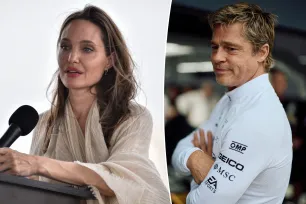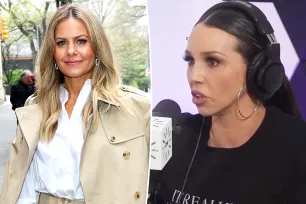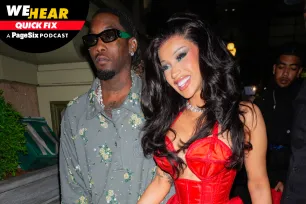Not everyone gets a second chance, and those who do, sometimes keep getting many. That’s precisely the biting difference between actors hailing from film families and those with virtually no strings attached to the movie industry, something that actor Roshan Mathew knows very well. The actor, who predominantly works in the Malayalam film industry, says the ‘nepo babies’ and outsiders battle different challenges, but struggling to keep getting work isn’t the stress of the privileged.
Roshan Mathew made his debut eight years ago and has since emerged as one of the most credible artistes of the film industry, branching out to Hindi cinema with films like Anurag Kashyap‘s Choked, Alia Bhatt-starrer Darlings and his latest thriller Ulajh, headlined by Janhvi Kapoor, an actor who often gets trolled for her nepotistic privilege in the film industry.

In an interview with Indianexpress.com, Roshan Mathew spoke about what gets him to sign a Hindi film, why he is happy to take credit for the continued rise of Malayalam cinema, the reaction of Janhvi when he confessed that her “maturity” surprised him, and his thoughts on nepotism in the industry.
Edited excerpts:
View this post on Instagram
A post shared by Roshan Mathew (@roshan.matthew)
Is there a different filter with which you choose your Hindi films?
The only question I ask myself is whether it is a film that I will be able to do in Malayalam. If the answer is no, I am more inclined to take it up, because it makes sense to go out, do the film and come back. I have to tempt myself to leave Malayalam films to do something else, but at the same time, I like jumping and doing work outside. It is a very liberating feeling. I am a lot more free and at ease when I work outside.
In what sense do you feel freer?
Even though I have spent a few years outside Kerala, I understand that I belong here. My childhood was spent here, and my stories are from here. So, I feel this is the place I will come back to, I have a story to tell, and these are the people I want to tell it to. So, when I work outside, the pressure (isn’t there). For example, in the Malayalam industry, every project comes loaded with the pressure that I have to do it well so that it leads to more opportunities.
With Hindi, when I come and do a film with people like Alia, Janhvi, Anurag, Jasmeet, Sudhanshu, I feel so fortunate that I am doing it and I don’t care whether it will lead to something. I didn’t do Darlings thinking it would get me another Hindi film; I did it because it was a cool opportunity. That’s what is liberating.
Your Hindi stint has you collaborating with interesting filmmakers– From Anurag Kashyap to Sudhanshu Saria.
Maybe these people think highly of me (laughs)! They have a keen eye, because there is a lot of talent in Bollywood, and it isn’t that these filmmakers have no other option. They are choosing to zero in on an option like me either because they find my work interesting or because they think I am right for the role.
I say you need a keen eye because it is only when my films are coming that I do interviews; I am not in the public eye. When my work isn’t doing the talking, there is hardly any talking happening. I am thankful to them that they don’t forget me and think of me when it comes to their films.
There is diversity even in the Hindi film actors you have worked with, from Sayami Kher, Alia Bhat to Janhvi Kapoor.
All three of them come every single day of the shoot to deliver the best version of the scene. That’s all you need with your co-star, this is non-negotiable, rest everything you can make your peace with. You need to know that your co-actor also aims for the same thing, not just pack up and go home early or highlight their performance.
 Janhvi Kapoor in a still from Ulajh. (Photo: PR Handout)
Janhvi Kapoor in a still from Ulajh. (Photo: PR Handout)
Is there something about Janhvi that surprised you?
Her maturity and the awareness of how big a responsibility the character of Suhana in Ulajh was. I had watched her films before Ulajh came to me and had seen a few interviews here and there, but I did not put her down as someone who was so mature and perceptive. I told her the same on the third day, that I didn’t expect this and she told me, ‘Ya ya most people don’t expect it.’
Do you think the audience is harder on actors coming from film families? The nepo babies, as they are called?
In a workplace that gets so much attention from the public… People who come from film families or have parents who are big stars naturally get more attention than others. This comes with an added level of pressure, but at the same time, for those of us who don’t have that, there is the pressure of knowing that you won’t have a second shot at it. You don’t get unlimited second chances. If you fail in the first, that could very well be the end of you. That’s not true for people who come with a certain film background; I feel that they get more second chances than people from outside.
During Darlings, people on set kept asking you how Malayalam cinema is doing such great work, and you had become a representative of sorts for the industry. We are now at Ulajh and Malayalam cinema is still leading the way…
I still get all the credit, it feels amazing! And now I shamelessly take it (laughs)! I have stopped saying, ‘Oh but I wasn’t part of that film.’ I just say yes, right, thank you!
Click for more updates and latest Bollywood news along with Entertainment updates. Also get latest news and top headlines from India and around the world at The Indian Express.
Disclaimer: The copyright of this article belongs to the original author. Reposting this article is solely for the purpose of information dissemination and does not constitute any investment advice. If there is any infringement, please contact us immediately. We will make corrections or deletions as necessary. Thank you.







